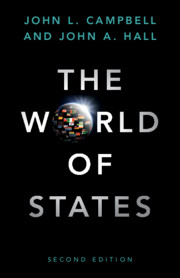Book contents
- The World of States
- The World of States
- Copyright page
- Contents
- Tables
- Preface to the First Edition
- Preface to the Revised, Second Edition
- Introduction
- 1 The Past
- 2 Conditions of Existence, Old and New
- 3 Challengers?
- 4 States of the Global South
- 5 The North
- 6 Still the Strongest Power on Earth?
- Conclusion
- References
- Index
4 - States of the Global South
Published online by Cambridge University Press: 28 May 2021
- The World of States
- The World of States
- Copyright page
- Contents
- Tables
- Preface to the First Edition
- Preface to the Revised, Second Edition
- Introduction
- 1 The Past
- 2 Conditions of Existence, Old and New
- 3 Challengers?
- 4 States of the Global South
- 5 The North
- 6 Still the Strongest Power on Earth?
- Conclusion
- References
- Index
Summary
We have argued that a successful state provides order, security, and belonging and as a result affluence to a society that controls it. Modern states of this type were created in Europe’s Darwinian world, one that mandated fiscal extraction by means of bureaucratic development. The institutional state capacity that resulted was far from negative: it involved the provision of legal services, and the fostering and protection of economic activity – this being crucial since traders were mobile and prone to move (and thereby to increase the power of one’s enemies) if they were treated badly. The endless interaction between competitive states and their societies had three dramatic consequences. First, there was further substantial institutional development. Second, distinctive national identities were created over time as diverse linguistic and ethnic groups merged into the culture of their states.
- Type
- Chapter
- Information
- The World of States , pp. 117 - 147Publisher: Cambridge University PressPrint publication year: 2021

